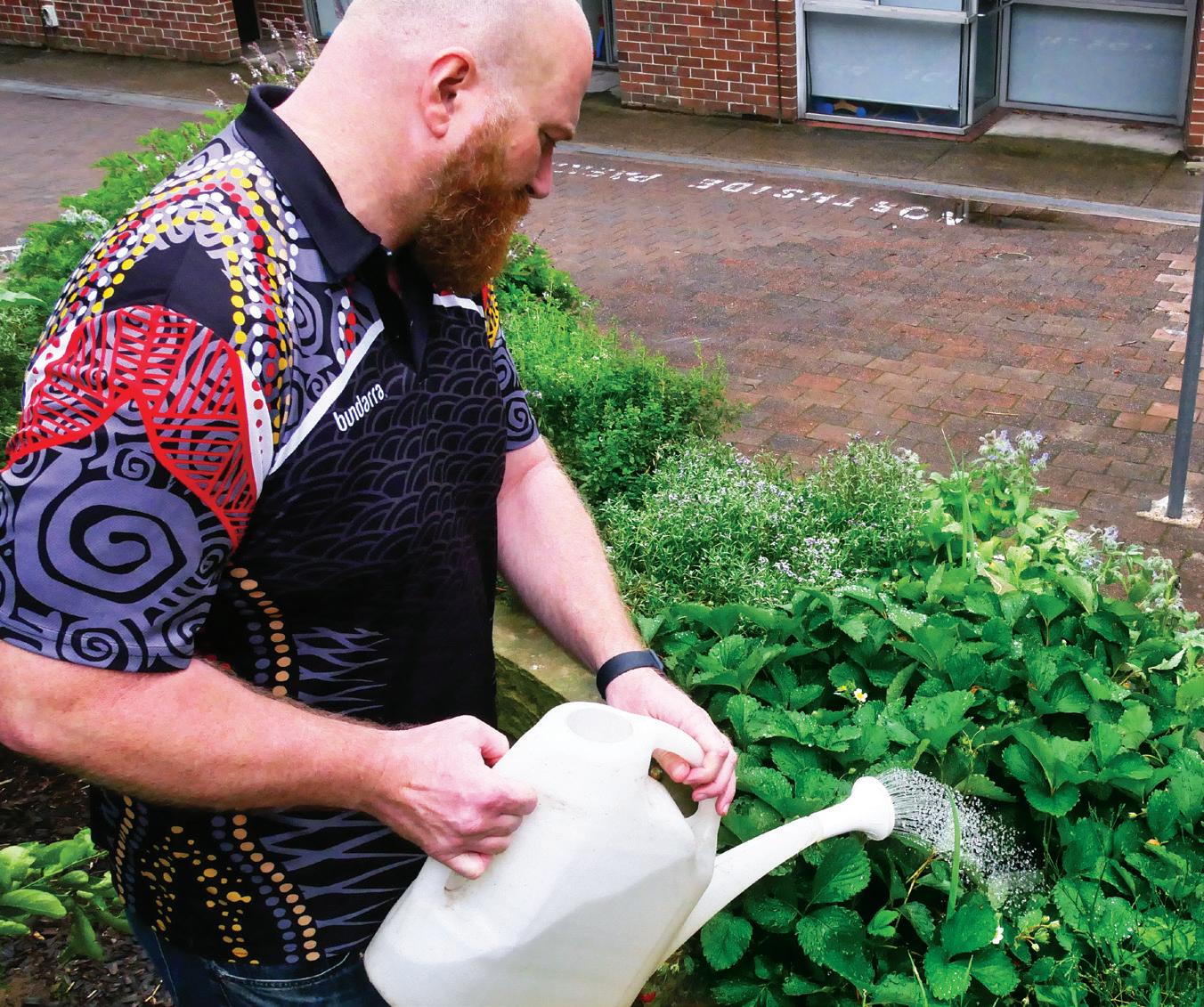
3 minute read
CHURCHES IN THE DIRT (AND SUNLIGHT

By Bethany Cliff
Advertisement
JOSH D OWTON ( Pictured above) When Keith Blackburn and his bible study group from Canberra Baptist Church started a series on Job, they couldn’t have imagined the chain of events that were to follow. Inspired by their study, Keith and his group, ‘felt a responsibility to try and help (because) the basic message is you’re one small part of a large, interconnected creation.’ They realised that their daily behaviours can harm God’s good creation—the earth and every living creature in it—and so they wanted to find practical ways they could intentionally care for his creation. That’s why their church installed solar panels in 2010 and partnered with Baptist World Aid on projects in flood-prone Bangladesh.
‘As a consequence of melting snow and volatility brought on by climate change,’ Keith says of this community in Bangladesh, ‘they are probably the least contributors to the problem, yet they feel the brunt of it.’ It’s the sad reality that communities most threatened by climate and environmental disasters are those who are least responsible and have limited access to resources to reduce their risk.
Twelve years after first installing their solar panels, Canberra Baptist continues to support communities in Bangladesh with income from the panels and gifts collected at their annual Thank Offering. They also care for creation through other initiatives like their community garden, rain-water tanks and energy audits.
Canberra Baptist isn’t alone. Many other Australian churches are getting creative in ways they can care for the earth and bless their communities, both local and global. Simple, creative initiatives in the local church are sprouting abundant grace within the community.
In 2014 Enfield Baptist Church (in Adelaide) established Den’s Community Garden in memory of Den, a beloved church member who, ‘loved everything garden, nature and God’s creation,’ according to her daughter Casey Burgess. The thriving garden wraps around the community partnerships building. ‘It has grown physically,’ says Casey who works as a community development support worker, ‘and the community around it has grown so much.’
The beauty and abundance of Den’s Garden prompts those walking past to stop, look and walk through. The staff at Enfield Baptist welcome any visitors and over the past few years have had many opportunities to build relationships with those in their community. The church also runs a community gardening project which, ‘is about teaching sustainability,’ says Casey, ‘but the main thing is building relationships showing the love of Jesus.’
Northside Baptist Church (in Sydney) was also looking for ways to build trust and relationships within their bustling, urban community. And so, in 2016 they built their community herb garden after their strengths-based assessment pointed them towards a small area outside the church building. ‘It’s (herb garden) a free gift,’ says Josh Dowton (Executive Pastor). ‘We want the community to experience the goodness, joy, grace, and love of God through what we’re doing.’
By setting up no-strings-attached community gardens both Enfield Baptist and Northside Baptist have seen relationships in their community flourish. People ask why they open the gardens to anyone and, ‘to be able to honestly say because we can and we genuinely want to bless the community,’ says Josh, ‘the amount of conversations that results in is just extraordinary.’ People who are struggling economically or with limited space to set up their own gardens are nourished by produce from these gardens. And the hope is that they’re spiritually fed too, through witnessing the grace of God in these gardens.
Each of these churches believe God’s mandate for his people is to care for creation and for each other. They’re some of many churches finding simple yet creative ways to take responsibility for the environment and be a loving neighbour in their community.
GREEN STEPS YOUR CHURCH CAN TAKE
1Establish a produce swap – A place for the community to swap their home-grown fruit and veggies with each other.
2Do an energy audit – Are there lightbulbs you can switch out for more energy efficient ones?
3Ditch the plastic – Pick up some plates and cutlery from your local op shop for teatime.
4Host a clothing swap – Encourage your community to choose second-hand instead of new.
5Look up – Install solar panels on your church roof.
6Clean-up day – Finish your Sunday service early and collectively pick up rubbish in your local community.
7Get creative! – Brainstorm your strengths and find space for a community garden. To find out how your church can get involved with Baptist World Aid, visit: bwaa.co/get-involved







